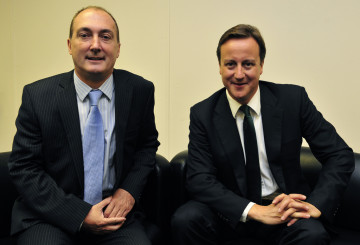 David “one is an ordinary bloke” Cameron’s top internet advisor has suggested that ISPs spy on their customers to work out which are downloading pirated content.
David “one is an ordinary bloke” Cameron’s top internet advisor has suggested that ISPs spy on their customers to work out which are downloading pirated content.
Mike Weatherley, a Conservative MP and Intellectual Property Adviser to UK Prime Minister David Cameron also wants ISPs to censor the Internet better.
According to his report, ISPs have a moral obligation to do more against online piracy.
One would think that Weatherley would have worked out that sort of thing did not work very well. He has previously suggested that search engines should blacklist pirate sites which does not seem to have changed much.
So going “more draconian” seems to be Weatherley’s answer. The just-released 18-page report stresses that these companies have a moral obligation to tackle copyright infringement and can’t stand idly by.
The report uses information which has been helpfully provided by people with a history of providing accurate and not at all misleading figures – the pro-copyright groups including the MPAA, BPI, and the Music Publishers Association.
It offers various recommendations for the UK Government and the EU Commission to strengthen their anti-piracy policies.
One of the key points is to motivate Internet services and providers to filter content proactively. According to the report it’s feasible to “filter out infringing content” and to detect online piracy before it spreads.
“There should be an urgent review, by the UK Government, of the various applications and processes that could deliver a robust automated checking process regarding illegal activity being transmitted,” Weatherley said.
Weatherley added that ISPs should not just remove the content they’re asked to, but also police their systems to ensure that similar files are removed, permanently.
“ISSPs to be more proactive in taking down multiple copies of infringing works, not just the specific case they are notified of,” he said.
This type of filtering is already used by YouTube, which takes down content based on fingerprint matches. However, the report suggests that regular broadband providers could also filter infringing content.
Weatherley also said that protecting the rights of copyright holders has priority over a “no monitoring” principle that would ensure users’ privacy. If the monitoring is done right.
“There is also the question as to whether society will want to have their private activities monitored (even if automatically and entirely confidentially) and whether the trade off to a safer, fairer internet is a price worth paying to clamp down on internet illegal activity. My ‘vote’ would be “yes” if via an independent body.”


















